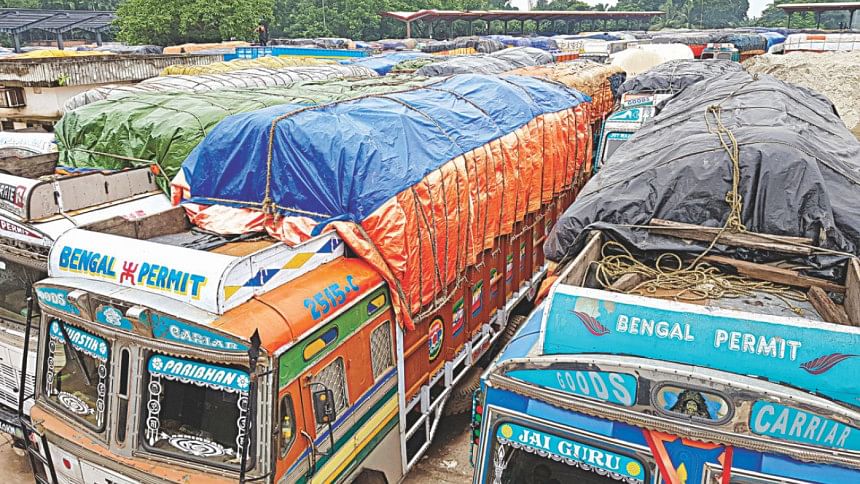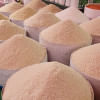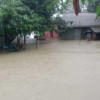Rice import gets boost

Disclosing for the first time this year's crop loss figure, the government yesterday decided to slash the tax on rice imports to 2 percent from 10 percent.
Flashfloods in the six northeastern haor districts and fungal attacks (rice blast) in 19 districts in the Boro season have caused 20 lakh tonnes of crop loss, said the food ministry.
At least 20 districts in the north and elsewhere in the country have been flooded over the past few days.
Against this backdrop, a cabinet committee meeting at the secretariat yesterday approved the government's decision to import 20 lakh tonnes of food grains -- 15 lakh tonnes of rice and 5 lakh tonnes of wheat -- in the current fiscal year. This is an 11 lakh tonnes addition to the government's earlier projected food import volume of 9 lakh tonnes.
The decision to cut import duty has been sent to the law ministry for vetting, said a press release of the National Board of Revenue last night.
All of this comes at a time when private importers have been dragging their feet for the last 10 days in releasing nearly 24,000 tonnes of rice from some 800 trucks, which remained stuck at Hili and Benapole land ports.
After import of the staple from India, the traders refrained from having those released from the ports in anticipation of a tax cut.
This happened when rice prices were showing an uptrend both in wholesale and retail markets in Dhaka and elsewhere in the country. The government took note of the situation and finally decided to act.
This is the second duty cut for rice import this year. Earlier in June, the government slashed it to 10 percent from 28 percent.
After the latest duty cut, importers would be requiring to pay Tk 1.56 crore only instead of Tk 7.82 crore in tariff for releasing the 24,000 tonnes of rice stuck at various ports.
The meeting of the Food Planning and Monitoring Committee, attended by several ministers and secretaries, made the duty-cut decision to encourage import and tackle any probable food crisis.
While announcing the decision before journalists, Food Minister Qamrul Islam, however, clarified that despite the duty cut, rice price would not decrease by Tk 8 or Tk 10 a kg. He did not say though how much the consumers would have to pay.
"Rice price is within the people's purchasing capacity," claimed Qamrul.
Prices of largely consumed coarse rice marked a 47 percent increase, from Tk 30-32 a kg a year back to Tk 42-45 a kg now in Dhaka markets.
The meeting, also attended by Finance Minister AMA Muhith, Agriculture Minister Matia Chowdhury and Commerce Minister Tofail Ahmed, took stock of the country's current flood situation and also the low food reserve.
Muhith said there was no food crisis, but imports were required to offset the stock shortfall.
“This decision of the government to import food grains does not indicate that there is a food crisis in the country,” said Food Minister Qamrul, claiming, “In fact, there is no food shortage in the country."
The government is importing 2.5 lakh tonnes of rice from Vietnam, while private importers brought in over 8 lakh tonnes of rice and wheat from India. The government has also recently signed a deal with Cambodia to import up to 10 lakh tonnes of rice in the next five years. Around 2.5 lakh tonnes of the staple will reach Bangladesh by October this year, the minister said while speaking of the government's initiatives.

 For all latest news, follow The Daily Star's Google News channel.
For all latest news, follow The Daily Star's Google News channel. 







Comments